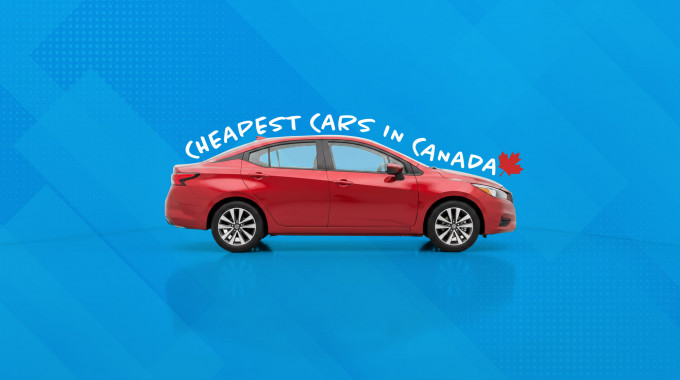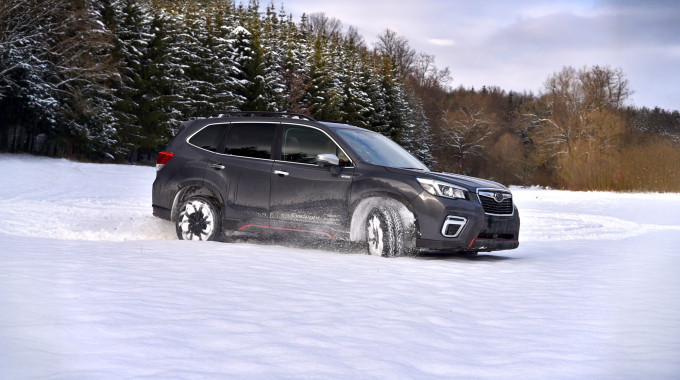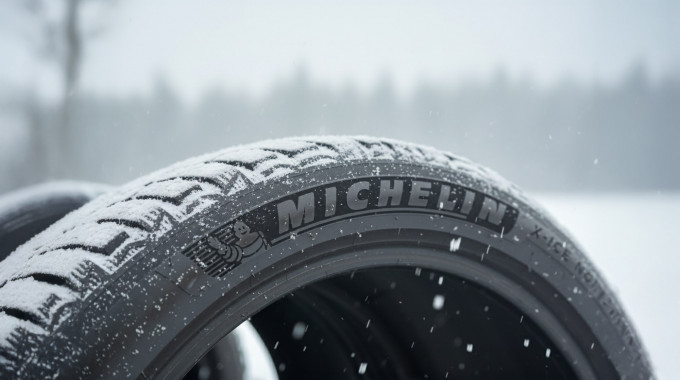
Buying a Used Truck: 10 Things To Keep in Mind
Right now, nearly 9 out of ten passenger vehicles sold in Canada are a crossover, SUV or pickup truck. With a love for four-wheel drive and an increasing appetite for flexible and adventure-ready utility, Canadians are researching more pickup truck models than ever while they search for their next used vehicle.
If you’re one of those shoppers, read on for some useful facts to keep in mind as you shop for that new-to-you pickup.
Used truck options in two sizes
Generally, the used pickup trucks you’re searching for will come in one of two sizes. These include mid-size models like the Chevrolet Colorado, Ford Ranger, Nissan Frontier, Toyota Tacoma, Honda Ridgeline and Jeep Gladiator, as well as full-size models like the Toyota Tundra, Ford F-150, RAM 1500, Chevrolet Silverado, and GMC Sierra.
Some shoppers prefer the added size and capability of a full-size model, others prefer the increased manoeuvrability and fuel economy common in mid-size pickups. Of course, now there are electric trucks in the mix as well.
Lately, small trucks like the Hyundai Santa Cruz and Ford Maverick have also joined the marketplace. These new-for-2022 models don’t fall into used vehicle territory however.
The most reliable used pickup
The most reliable used pickup you can buy will tend to be the one that’s been the most lovingly and consistently cared for by its previous owner(s).
As trucks age, their long-term reliability and durability depends largely on proper and timely maintenance and care. That’s why it’s so important to check service records and confirm that past owners have treated the vehicle properly.
A used pickup truck that’s been regularly dealer serviced throughout its life is ideal, as ongoing maintenance, inspections, recalls, software updates and other fixes are more likely to have been applied during regular service appointments. These inspections and updates can help ensure small problems are addressed before growing into larger ones, and that the vehicle is running the latest software updates and bug fixes, which can fend off headaches.
The gist? A used pickup with a complete and timely service history is a great place to start your ownership experience.
Truck recalls
Transport Canada lists numerous recalls affecting the trucks we’re covering in this story. Some pickups are affected by one or more recalls, others are not.
Recall work is performed free of charge in a dealer setting to make your vehicle safer. Check with your local dealer or the manufacturer’s website to see which recalls may apply to the used pickup truck you’re considering.
Avoid the lift kit
Every day, enthusiasts around the globe enjoy pickup trucks that have been heavily modified to increase capability, performance, and style.
Still, the average shopper should proceed with caution when approaching a modified pickup.
Engine modifications designed to improve power output can cause engine wear and damage, or void remaining warranty coverage. Some pickups are at higher risk of axle wear and axle leaks when modified with a lift kit. Other modifications can result in damage or wear to affected parts and systems, and that damage and wear isn’t typically covered by remaining warranty coverage, if applicable.
Translation? Most shoppers should stick to “stock” for maximum peace of mind.
Avoid the air suspension
Air suspension systems have been around for ages in cars, trucks and SUVs. Today, they remain a common source of headaches across vehicles of all makes and models as they age.
Some pickup truck models, including the RAM 1500, are equipped with optional hardware that allows the vehicle’s suspension to lift and lower on demand by manipulating the air pressure being applied to specialised components within the suspension.
A significant number of owners have reported problems with the dependability of air suspension systems like this, as vehicles age. These problems can be exasperated by use in cold weather, and may be pricey to fix. In fact, some owners of air suspension equipped trucks even buy special kits to remove or delete the system from their trucks as they age.
To remove a source of potential headaches, avoid buying a used truck with an air suspension system.
Ensure the battery is as healthy as possible
Aside from avoiding the air suspension, one of the best ways to prevent headaches from your new-to-you pickup is to make sure its battery is as healthy as possible. Whether on your own or with some help from a technician, clean the battery terminals of any buildup, and have the battery tested. If it doesn’t pass with flying colours, install a new one in its place.
Below, the 8 signs of a damaged vehicle battery:

Modern vehicles are harder than ever on their batteries, and many owners say factory batteries have a lifespan as short as 2 to 3 years. Ensuring your pickup is running a fresh and healthy battery is a great way to eliminate frustrating electronic ‘gremlins’ that tend to appear when a battery is circling the drain.
Don’t underestimate the havoc a weak battery can wreak across dozens of vehicle systems. Installing a fresh new battery in place of a weak and aging one can instantly improve the reliability of virtually any modern truck. In terms of cost, here’s how much you can expect to pay.
Water leaks
Water leaks are not uncommon in used pickups – especially on models equipped with sunroofs. A water leak can reduce your truck’s resale value, damage its interior and electronics, and even leave you soaking in the rain.
To check for signs of a water leak, press your hand into all carpeted surfaces on the interior floor, paying close attention to the ‘corners’ of the truck’s floor. Look for signs of water staining, or the smell of mould and mildew. If any dampness or standing water is detected, one of many culprits may be to blame, including poorly-sealed exterior glass, a sunroof drain problem, or a rear rear brake light gasket
Buying a used pickup with an undiagnosed water leak is not advised, and moving to another unit is a solid course of action.
Hard on parts?
When used to tow, haul or venture off-road, pickups can be hard on their parts – wearing out brakes, tires and suspension components more quickly over time. Regular maintenance and service can help keep things in tip top shape.
Still, approach any used pickup you’re considering assuming it needs new tires, a brake job, and some suspension work, until you’ve got proof to the contrary. Most sellers aren’t trying to stick you with an upcoming service bill, but some are – so it can pay to make sure there’s plenty of life left in the suspension, tires and brakes before you buy.
When inspecting tires, be sure to check both the inner and outer sidewall surfaces for signs of damage, including rips, tears, lumps, or gouging. Confirm that the truck you’re considering is running a quality set of tires in good shape, from a reputable brand that you’re familiar with.
To help coax potentially troublesome sounds from the suspension in the truck you’re considering, be sure to spend a portion of your test-drive on a rough road surface, after quieting the cabin. Listen closely – clunking, popping, banging or smashing sounds from beneath the truck are all signs that attention may be required to one or more suspension components.
Lot rot
Because of the global pandemic, there’s an increased likelihood that the truck you’re considering may be suffering from so-called ‘lot rot’, which can occur when a vehicle sits parked for extended periods.
Symptoms of lot rot include a weakened battery, flat-spotted tires, flat tires, rusty brakes, suspension component stiffness, rodent problems, dings and scrapes, and more.
If the truck you’re considering has been parked for a prolonged period, lot rot can increase the likelihood of unwanted noises, sensations and even part wear. Flat-spotted tires and rusty brake rotors can result in increased noise levels and feedback from the vehicle until putting on some miles.
Other symptoms of lot rot can result in degraded ride quality, fuel economy and handling, as well as electronic system trouble.
3 Reasons to Get on a Hoist
The Pre-Purchase Inspection (PPI) is the single most important step a used pickup truck shopper can take ahead of their purchase. Plan on having a PPI performed on the vehicle you’re considering, as a final step before you make an offer and sign a cheque.
A PPI is generally arranged ahead of time, on the buyer’s dime. Ask the seller if they’ll let you take the vehicle to a technician, or to meet you at a shop of your choosing, for the inspection.
Generally, a PPI takes about an hour, costs less than $150, and can reveal a multitude of potential problems that may not otherwise be apparent to test-driving shoppers. These include damage and wear to suspension, tires, driveline and braking parts, fluid leaks, rust, and even poorly-repaired damage from previous accidents.
At the end of a PPI, customers are typically provided with a printed list of items that precisely summarizes the health, condition and concerns related to the specific vehicle in question. This information can save shoppers thousands of dollars on upcoming repairs, or confirm that their choice of used pickup is a solid one.
Ready to buy a new pickup? Get pre-approved for your truck loan online in minutes here.







